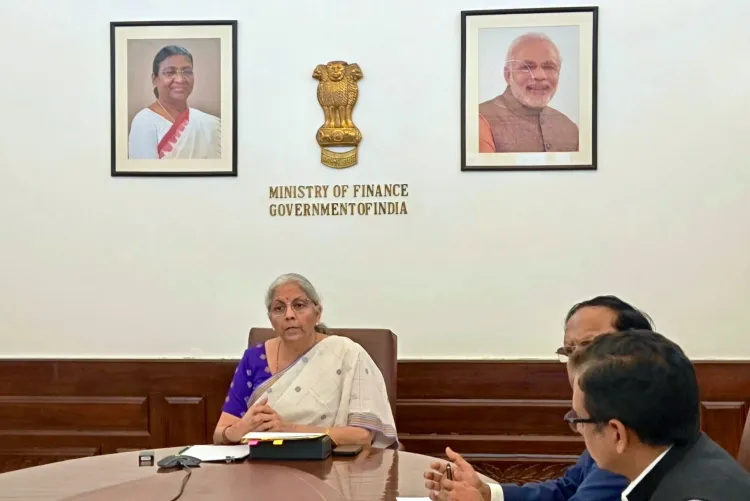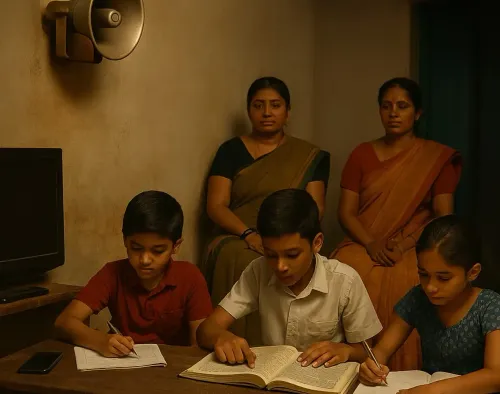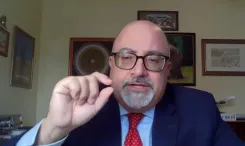How have DBT and Jan Dhan schemes transformed welfare delivery in India?

Synopsis
Key Takeaways
- Direct Benefit Transfer (DBT) has transformed welfare delivery.
- Over 25 crore people have overcome poverty.
- PM Jan Dhan Yojana achieved universal banking.
- Transparency has improved in financial transactions.
- 68% of loans under PM MUDRA Yojana support women.
New Delhi, June 5 (NationPress) The financial inclusion initiatives introduced by the government under Prime Minister Narendra Modi have fundamentally transformed the welfare delivery system in India over the past 11 years. This transformation has been achieved by addressing leakages and enhancing transparency, as stated by Finance Minister Nirmala Sitharaman on Thursday.
The NDA administration has implemented significant measures aimed at lifting numerous individuals out of poverty, with a strong emphasis on empowerment, infrastructure, and inclusion.
“The Direct Benefit Transfer (DBT) system has dramatically changed welfare delivery in India, eliminating leakages and promoting transparency. Currently, more than 1,200 government schemes utilize DBT, facilitating the direct transfer of Rs 44 lakh crore to beneficiaries’ bank accounts,” FM Sitharaman noted in a post on X.
This innovative system has already saved the nation Rs 3.48 lakh crore by reducing leakages and inefficiencies, she reported.
Additionally, the PM MUDRA Yojana has empowered individuals at the grassroots level and made entrepreneurship accessible to all.
“Under this initiative, over 52 crore loans amounting to Rs 33 lakh crore have been approved, with 68 percent of these loans benefiting women,” the Finance Minister shared.
The PM Jan Dhan Yojana has achieved universal banking access, with 55.44 crore accounts opened — of which 55.7 percent are owned by women, she added.
As articulated by PM Modi, the emphasis on DBT, digital inclusion, and rural infrastructure has guaranteed transparency and expedited the delivery of benefits to the last mile.
With funds being directly credited to beneficiaries’ bank accounts, leakages have been significantly reduced, resulting in a decrease of subsidy allocations from 16 percent to 9 percent of total expenditure, according to government data from April.
“Thanks to these measures, over 25 crore individuals have successfully risen above poverty. The NDA is dedicated to fostering an inclusive and self-reliant India, where every citizen has the chance to live with dignity,” PM Modi remarked in a post on X.










